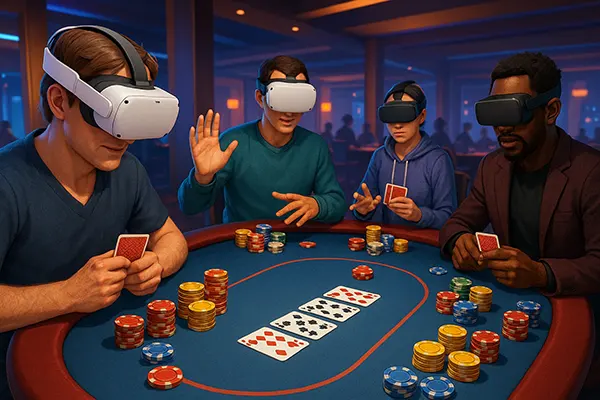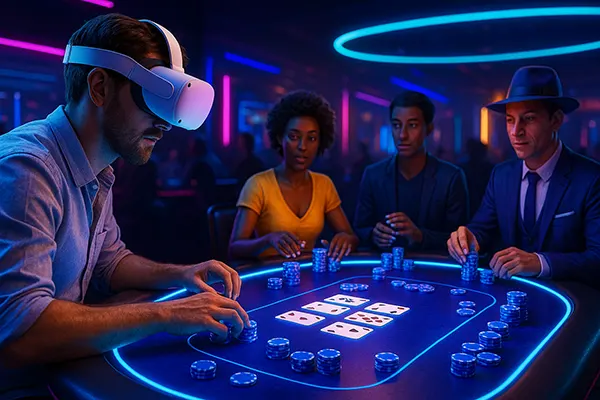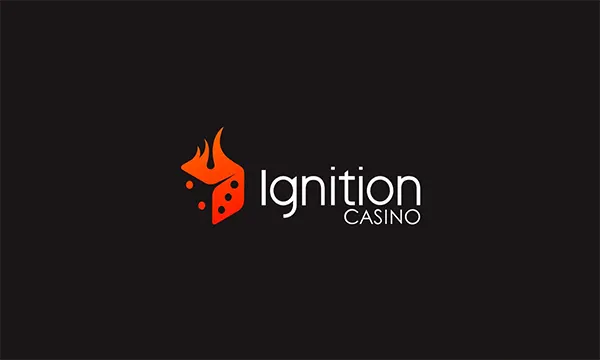
The Future of Poker in the Metaverse
The global poker industry has always adapted to new technologies, moving from physical casinos to online tables and mobile applications. In 2025, one of the most ambitious transformations is taking shape: the rise of poker in the metaverse. Virtual reality environments promise to create a fresh format of live gaming, offering players immersive social interactions, custom avatars, and realistic virtual tables. This development raises questions not only about technology but also about how poker as a game of skill and strategy will evolve in digital environments that replicate physical presence.
Virtual Poker Tables and Technological Evolution
Metaverse poker rooms represent the next step beyond traditional online poker. Unlike conventional websites, virtual reality tables are designed to replicate the physical feel of sitting down at a real table. Players can wear VR headsets, use hand-tracking controllers, and interact with the cards and chips in three-dimensional space. This adds a level of authenticity that current platforms cannot fully achieve.
Technological advancement plays a key role. Major VR hardware such as Meta Quest 3 and Apple Vision Pro now provide smoother graphics, reduced latency, and higher processing power, allowing poker games to feel natural and fluid. Moreover, blockchain integration enables transparent transactions and digital ownership of items, from virtual chips to unique avatar accessories.
In addition to hardware, software developers are experimenting with haptic feedback to simulate the tactile sensation of handling chips. This combination of realism and innovation could position VR poker as a hybrid experience bridging the gap between online and live play.
Advantages for Players
For poker enthusiasts, the metaverse opens doors to experiences previously impossible in digital environments. The ability to read body language through avatars, communicate with gestures, and engage in real-time discussions can bring back the social depth often missing from online play. It also introduces global networking, where players from different continents can join the same table without geographical barriers.
Moreover, customisable avatars allow players to express their identity, creating a sense of presence and individuality. This has the potential to enhance community building, as players may return not only for the game but also for the friendships and networks they develop in these environments.
Finally, the introduction of AI-driven dealers and moderators ensures fair play, rule enforcement, and even interactive tutorials for newcomers. This balance between technology and social interaction could establish VR poker as a mainstream format in the years to come.
Avatars and Social Interaction
One of the most attractive elements of poker in the metaverse is the social interaction it enables. In live poker, reading expressions, building rapport, and using psychology are key strategies. In virtual spaces, avatars and advanced facial-tracking technologies can replicate these elements, making the game more than just cards and numbers.
Developers are already experimenting with facial recognition features that allow avatars to mimic players’ real expressions. This means a smile, hesitation, or glance could provide subtle cues just like in live tournaments. The combination of voice chat and physical gestures further deepens the sense of realism.
These interactions extend beyond the table. Players can walk around virtual lobbies, attend poker events, or even join digital tournaments hosted in branded metaverse environments. This integration of gaming and social life transforms poker into a community-driven experience rather than a solitary one.
Risks and Ethical Challenges
Despite the opportunities, poker in the metaverse is not without risks. One concern is accessibility, as VR hardware remains relatively expensive, creating a digital divide among players. While costs are decreasing, universal adoption will take time. This may initially limit participation to technologically advanced markets.
Another challenge is responsible gaming. Immersive environments may blur the line between entertainment and addiction, making it easier for players to spend long hours without noticing. Regulators and developers will need to introduce protective mechanisms, such as time alerts, spending limits, and transparent rules.
Finally, the ethical implications of data collection in VR environments cannot be ignored. Facial expressions, voice patterns, and behavioural cues are sensitive information, and strict privacy standards must be enforced to protect players in these new virtual poker rooms.

Global Market Trends and Future Outlook
By 2025, several poker operators have already announced pilot projects within major metaverse ecosystems. From Las Vegas-based brands hosting virtual tournaments to independent developers launching decentralised poker lounges, the market is expanding rapidly. Analysts suggest that the global metaverse gambling sector could exceed $20 billion by 2030, with poker being one of the central attractions.
Esports-style tournaments are also expected to merge with VR poker. The ability to stream matches in three dimensions, with commentators and live spectators joining through avatars, could bring poker audiences to an entirely new level. This cross between entertainment, competition, and community is likely to attract younger generations familiar with gaming culture.
Looking ahead, the success of poker in the metaverse will depend on collaboration between developers, regulators, and players. If implemented responsibly, it could redefine not only how poker is played but also how people connect socially in digital worlds.
Final Perspective on the Evolution of Poker
Poker has always been about more than just cards; it is about human interaction, psychology, and skill. The metaverse provides an opportunity to preserve these elements while enhancing them with modern technology. Virtual tables, avatars, and realistic environments offer a promising vision of the game’s next chapter.
While challenges such as regulation, hardware accessibility, and responsible play remain significant, the industry is moving steadily toward solutions. With ongoing investment and global interest, VR poker could soon become a mainstream alternative alongside traditional casinos and online poker sites.
Ultimately, the future of poker in the metaverse illustrates how innovation continues to shape one of the world’s oldest and most strategic games. As technology evolves, so too does the way people gather, compete, and build communities across digital frontiers.




